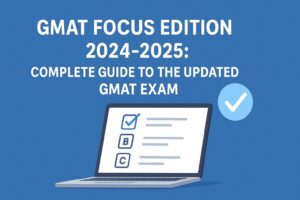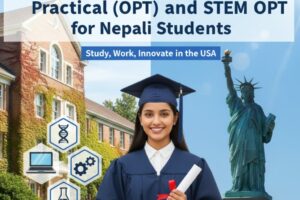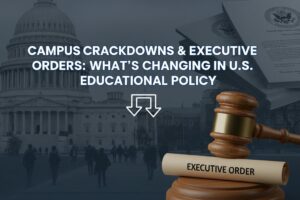Frequently Asked Questions about Studying in the USA

1. How much GPA is required to study in the USA?
While there is no single “minimum,” your GPA is the primary indicator of your academic readiness. For 2026, the competitive landscape is as follows:
- Top-Tier/Ivy League: Typically requires an unweighted GPA of 3.8 to 4.0 (out of 4.0).
- Mid-Tier/State Universities: Generally, look for a 3.0 or higher.
- Community Colleges: Often accept a 2.0 to 2.5, offering a pathway to transfer to 4-year universities later.
- Example: A student from Nepal with an average of 3.2 GPA is well-positioned for many reputable state schools like the University of Iowa or UT Arlington.
2. How much of a study gap is acceptable in the USA?
The U.S. is generally more flexible than other destinations (like Australia).
- 1–2 Years: Easily accepted with a simple explanation (e.g., preparing for tests, volunteering).
- 3+ Years: Requires a detailed justification in your Statement of Purpose (SOP).
- Pro-Tip: For 2026, visa officers are looking for “productivity” during gaps. If you spent your gap year working in a field related to your major or gaining certifications (like AI or Data Science), it is viewed as a strength rather than a weakness.
3. How can I study for free in the USA?
“Free” education usually means a Full-Ride Scholarship (tuition + living) or a Full-Tuition Waiver.
- Tuition-Free Colleges: Institutions like Berea College (Kentucky) and College of the Ozarks (Missouri) offer no-tuition models in exchange for on-campus work.
- Graduate Assistantships: Master’s and PhD students can receive 100% tuition remission plus a monthly stipend by working as Teaching or Research Assistants (TA/RA).
- Need-Blind Admission: Elite schools like Harvard, Yale, and Amherst offer full financial aid to international students if they are admitted, regardless of their ability to pay.
4. Why would you want to go to the USA to study?
The U.S. remains the #1 destination for 2026 due to:
- STEM OPT Extension: Students in Science, Tech, Engineering, and Math can work for 3 years post-graduation, a massive advantage for career ROI.
- Networking Hub: Home to 25% of the world’s Fortune 500 companies.
- Practical Edge: Focus on “Experiential Learning”—internships (CPT) are often built directly into the curriculum.
5. Why is studying in the USA better than in other countries?
The primary differentiator is Flexibility.
- Liberal Arts Approach: Unlike the UK or Australia, you don’t have to declare a major immediately. You can explore psychology, business, and coding in your first year before deciding.
- Credit Transfer: The U.S. has the most robust credit transfer system, allowing you to move from a 2-year Community College to a top-tier University seamlessly.
6. How much money is required to study in America?
The total cost of studying in the USA can vary significantly, ranging from as low as $18,000 to over $70,000 annually, depending on the following factors:
- University Tier & Location: Public state universities in the Midwest or South (like Arkansas State or Dakota State) offer tuition and living packages for $20,000–$28,000, while private institutions in major cities like New York or LA can exceed $75,000.
- Degree Type: Generally, Undergraduate programs span four years, while Master’s programs are usually two years. While annual costs may be similar, the total investment for a Bachelor’s is higher due to duration.
- Subject Area: Standard degrees in Liberal Arts or Education are often the most affordable. Programs in Engineering, Architecture, and Business may have higher “differential” tuition or lab fees.
- In-State Tuition Waivers: Some affordable state schools (like Weber State) allow international students to pay “In-State” rates if they meet certain academic criteria, which can cut tuition costs by 50% or more.
- Lifestyle Factors: Choosing to live in a smaller college town significantly reduces the cost of rent and groceries compared to metropolitan hubs.
Many students successfully manage these costs by securing on-campus jobs (working up to 20 hours per week), applying for merit-based scholarships during the admission phase, or pursuing Graduate Assistantships that provide tuition waivers in exchange for research or teaching.
7. How to study in the USA with a scholarship?
Scholarships are “front-loaded,” meaning you must apply early.
- Merit-Based: Awarded automatically based on high GPA and SAT scores.
- Need-Based: Requires filing the CSS Profile or ISFAA to prove your family’s financial situation.
- Timeline: Most scholarship-heavy deadlines fall between November 1 and January 5 for the following Fall intake.
8. Do I need the SAT to study in the USA?
The “Test-Optional” era is ending for top schools. For 2025/2026, major universities like Harvard, MIT, Yale, Stanford, Cornell, and Brown have reinstated mandatory SAT/ACT requirements.
- Strategic Advice: Even if a school is “optional,” a high SAT score (1450+) significantly boosts your chances for Merit Scholarships, which can save you $10,000–$20,000 per year.
9. What are the requirements to study in the USA from Nepal?
If you are working with a trusted consultancy for study in USA, understanding these core requirements early helps align your academic profile, documents, and visa preparation with U.S. university expectations.
- Academic Records: * Undergraduate: Completion of 12 years of schooling (SEE + NEB/Grade 12, A-Levels, or IB). A minimum GPA of 2.5 is usually required, though 3.0+ is preferred for scholarships.
- Graduate: A recognized 4-year Bachelor’s degree. Students with a 3-year degree may need to complete a bridge course or a Master’s first year in Nepal.
- English & Standardized Testing: * Language: Valid scores in IELTS (6.0–7.0), TOEFL (80+), or Duolingo (110+).
- Standardized Tests: Many top universities have reinstated the SAT/ACT for 2026 undergraduate admissions. Graduate applicants may need GRE or GMAT scores depending on the program.
- Documentation & Writing: * Essays: A tailored Statement of Purpose (SOP) or Personal Statement.
- References: 2–3 Letters of Recommendation (LoR) from teachers or employers.
- CV/Resume: An updated record of academic and extracurricular achievements.
- Financial & Visa Specifics: * I-20 Requirements: A Bank Balance Certificate and 6-month statement from a “Class A” bank in Nepal (e.g., Nabil Bank, NIC Asia, Global IME) showing funds for at least the first year.
- Fees: Payment of the SEVIS I-901 fee ($350) and the MRV (Visa Application) fee ($185).
- Digital Presence: You must now list your social media handles on the DS-160 form, as U.S. authorities may review them to verify your background.
10. How many IELTS bands are required for a USA student visa from Nepal?
Technically, there is no “official” IELTS score required by the U.S. government to issue a visa. The F-1 visa eligibility is primarily based on your Form I-20, which is issued only after you meet a university’s specific admission requirements.
However, for a successful application from Nepal in 2026, you should aim for the following benchmarks:
- Undergraduate Programs: Most universities require an overall score of 6.0 to 6.5. While some schools may offer “Conditional Admission” with a 5.5, having a 6.0+ significantly strengthens your visa profile.
- Graduate Programs (Master’s/PhD): A minimum of 6.5 is standard, with many top-tier research programs requiring a 7.0 or 7.5.
- Section Minimums: Even if your overall score is high, many universities insist that no individual band (Listening, Reading, Writing, Speaking) falls below 6.0.
11. What is the impact of my “Digital Footprint” on my visa application?
In 2026, your online presence is no longer private during the visa process. The DS-160 form now requires you to list all social media handles used in the last five years.
- Consular Scrutiny: Visa officers may review public profiles to ensure your posts align with your “non-immigrant intent.”
- Critical Advice: Do not delete your accounts right before an interview, as this is often flagged as suspicious. Instead, ensure your LinkedIn matches your CV exactly and avoid posting content that suggests you plan to work illegally or stay in the U.S. permanently.
12. What are “STEM-Designated” degrees and why are they important?
For 2026, choosing a STEM (Science, Technology, Engineering, and Mathematics) program is the most strategic move for international students.
- The 3-Year Work Benefit: While standard degrees allow for 12 months of work (OPT), STEM-designated degrees allow for an additional 24-month extension, totaling 3 years of legal work in the USA.
- Broadening Fields: It’s not just for engineers anymore. Many degrees in Business Analytics, Financial Engineering, and Digital Marketing are now STEM-designated. Always check the “CIP Code” of your program to confirm its STEM status.
13. How is the rise of AI affecting U.S. admissions and degrees?
U.S. universities are rapidly evolving to integrate Artificial Intelligence into both their curriculum and their admissions process.
- In the Classroom: Many universities now offer specialized Master’s in Artificial Intelligence or AI-focused tracks within Computer Science and MBA programs to meet the 2026 job market demand.
- In Admissions: Some universities now use AI tools to pre-screen essays for “authenticity.” If your Statement of Purpose (SOP) is 100% generated by AI without personal stories or human touch, it may be flagged. Always use AI as a tool to polish, not to write your entire story.
14. What does a “221(g) Administrative Processing” mean for Nepali students?
Some of the students in Nepal receive a “Pink slip” (Refusal under Section 221(g)). This does not mean your visa is denied; it means the embassy needs more time to verify your documents.
- Common Reasons in 2026: Verification of your Social Media accounts, Verification of bank balances, detailed research plans (for PhD/Master’s students), or background checks for those in sensitive technology fields.
- Next Steps: If you receive a 221(g), follow the instructions exactly. Most cases are resolved within 30 to 60 days, so it is vital to apply for your visa as early as possible (up to 365 days before your start date).
15. Can I travel home during my studies?
Yes, but with specific requirements. To re-enter the U.S. after a vacation in Nepal, you must have:
Current Trend: In 2026, it is highly recommended to carry your most recent transcripts and proof of tuition payment to show the border officer you are making “normal progress” in your degree.
A Valid F-1 Visa: If your visa sticker has expired but you are still a student, you must renew it at the embassy in Kathmandu before returning.
Travel Signature: Your Form I-20 must be signed by your university’s International Student Advisor (DSO) within the last 6 to 12 months.


